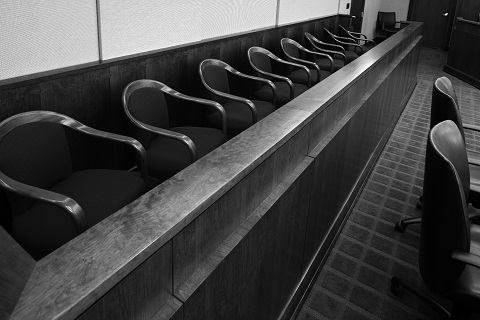Q: What is jury duty?
A: Jury duty is when regular people are randomly selected to serve as jurors in a trial or grand jury proceeding. Jurors listen to evidence, think about arguments, and decide if a defendant is guilty or not guilty, making sure everyone gets a fair trial. It's a way for ordinary citizens to be involved in the legal system and contribute to the pursuit of justice.
Q: Does being 18 make me eligible for jury duty?
A: That’s part of it. You also must be a U.S. citizen and a resident of the county in which you are summoned to serve. You must also have never been convicted of a felony (unless your civil rights have been restored) or be currently legally considered mentally incompetent or insane (A.R.S. §21-201).
Q: If they call me to serve, do I have to go?
A: Yes. All qualified citizens have an obligation to serve when summoned (A.R.S. §21-202) unless they are excused for some special reason or are granted a postponement (A.R.S. §21-336). You may request a postponement only two times. Failure to respond and report for jury service may subject you to legal consequences.
Q: Can I be excused from jury duty?
A: The Court may excuse people in the following circumstances (A.R.S. §21-202):
- Those people with a mental or physical condition that causes them to be incapable of performing jury service;
- Anyone whose jury service would affect the public interest or welfare in an adverse manner;
- Anyone who is not currently capable of understanding the English language; or
- Anyone who would experience extreme physical or financial hardship or serving would cause harm to someone under the care of the person who is called upon for jury duty.
The judge may also excuse people in other special circumstances, but this is not automatically granted. In the event, you request to be excused, you must provide the court with documentation that supports your request (A.R.S. §21-202).
Q: How often can I be called for jury service?
A: If you have been summoned and selected to serve on a jury, you are not required to serve again as a juror in any court in the state for two years following the last day of your service. If you have been summoned and appeared for jury service in Maricopa County, but were not selected for a jury trial, you will be excused from further service as a juror for eighteen months (A.R.S. §21-335).
Q: If I’m called to serve, will I be part of a jury?
A: Not necessarily. More people are notified to appear than will be needed because some requests to be excused are approved, and some people may be excused by the judge or the attorneys following questioning.
Q: How will jury duty affect the time I may have to take off from my job?
A: Your employer may not refuse to permit you to serve as a juror and may not dismiss you or penalize you in any way if you serve on any type of jury trial. However, your employer is not required by
law to compensate you while you are absent from employment because of jury service (A.R.S. §21-236).
Q: Do I get anything for serving on a jury?
A: Compensation for jury duty service depends on the court. Learn more at azcourts.gov/juryservice. Generally a qualified juror who serves on a trial in superior court may be compensated a $12 jury fee, mileage reimbursement for travel to and from court, and salary replacement up to $300 per day with employment verification according to A.R.S. §38-623.
Laws may have changed since the last time this article was updated. The current and most up-to-date laws can be accessed here.

